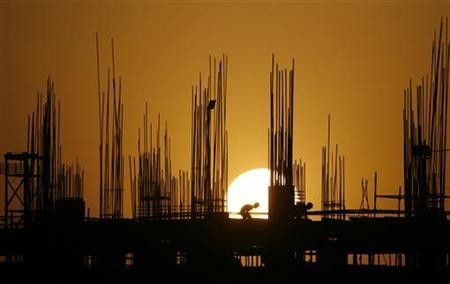Indian Government Unveils Road Map To Consolidate Fiscal Deficit

Indian Finance Minister P Chidambaram unveiled a fiscal consolidation road map Monday, intending to cut the country’s fiscal deficit to 3 percent of the GDP by 2017 from the current 5.8 percent, hoping that the Central Bank of India will support the government initiative with rate cuts.
Chidambaram said in a news conference at New Delhi that the government was targeting to reduce the fiscal deficit to 3 percent by controlling the expenditure, and the popular social welfare programs will not be affected by such measures.
After over a year of policy stagnation leading to economic sluggishness, the Congress lead UPA-2 government has been pushing for economic reforms in an attempt to boost growth.
"As fiscal consolidation and investors' confidence increases it is expected that the economy will return to the path of high investment, higher growth, lower inflation and long-term sustainability,” Chidambaram said, as reported by Reuters.
India’s fiscal deficit has widened to 5.8 percent in the last quarter and is expected to rise to 6 percent by the end financial year 2012-2013.
Following government initiatives to push economic growth through some big-ticket reforms, there has been mounting pressure on the Reserve Bank of India (RBI) to ease monetary policy. However, the RBI refused to make any cuts in interest rates and has called on the government to come up with a policy for fiscal consolidation.
The finance minister’s statement introducing the measures to control fiscal deficit has come a day ahead of the Reserve Bank of India’s quarterly policy review meeting on Oct.30, in which it is expected to consider the rate cuts. Nevertheless, the finance ministry officials and the sources are not optimistic on any monetary easing from the RBI, as the inflation continues on higher levels.
The wholesale price inflation for the month of September rose to 7.8 percent from 7.55 percent in August.
"A change in policy rates looks unlikely before January," one of the officials quoted by Economic Times said.
"RBI will go by its own assessment of the situation...A rate cut looks difficult," another finance ministry official said.
In its last meeting, the RBI had cut the Cash Reserve Ratio by 25 basis points, but kept the repo rate unchanged, much to the disappointment of markets and industry.
© Copyright IBTimes 2024. All rights reserved.






















